By Chris Anderson, MBA Class of ’22
Last Friday, the Kelley School of Business Center for the Business of Life Sciences hosted its annual Life Sciences Day in person for the first time since 2019! Our topic this year was Predictive Analytics in Healthcare, focusing on how data can be used to create models that support clinical decisions, optimize healthcare systems, and improve the lives of patients. We had over (not sure how many) students attend, from MBAs, to MSHM, College of Arts and Sciences graduate students, and undergraduates from Kelley and O’Neill. Joined by the students were four keynote speakers Paul Caulkins, anesthesiologist and chief medical director at IU Health, @Titus Schleyer, a health informatics researcher at the Regenstrief Institute in Indianapolis, and Paul Serex and Aaron Perry, professors in the Operations and Decisions Department at the Kelley School of Business with impressive data management consulting backgrounds in the healthcare spaces. The students spent the morning session engaging with each of our guests’ presentations covering case studies to cover their body of work in the healthcare spaces, then had an opportunity to connect with our guests and Kelley Life Sciences Board Members for lunch to network and ask follow-up questions regarding to the content presented.
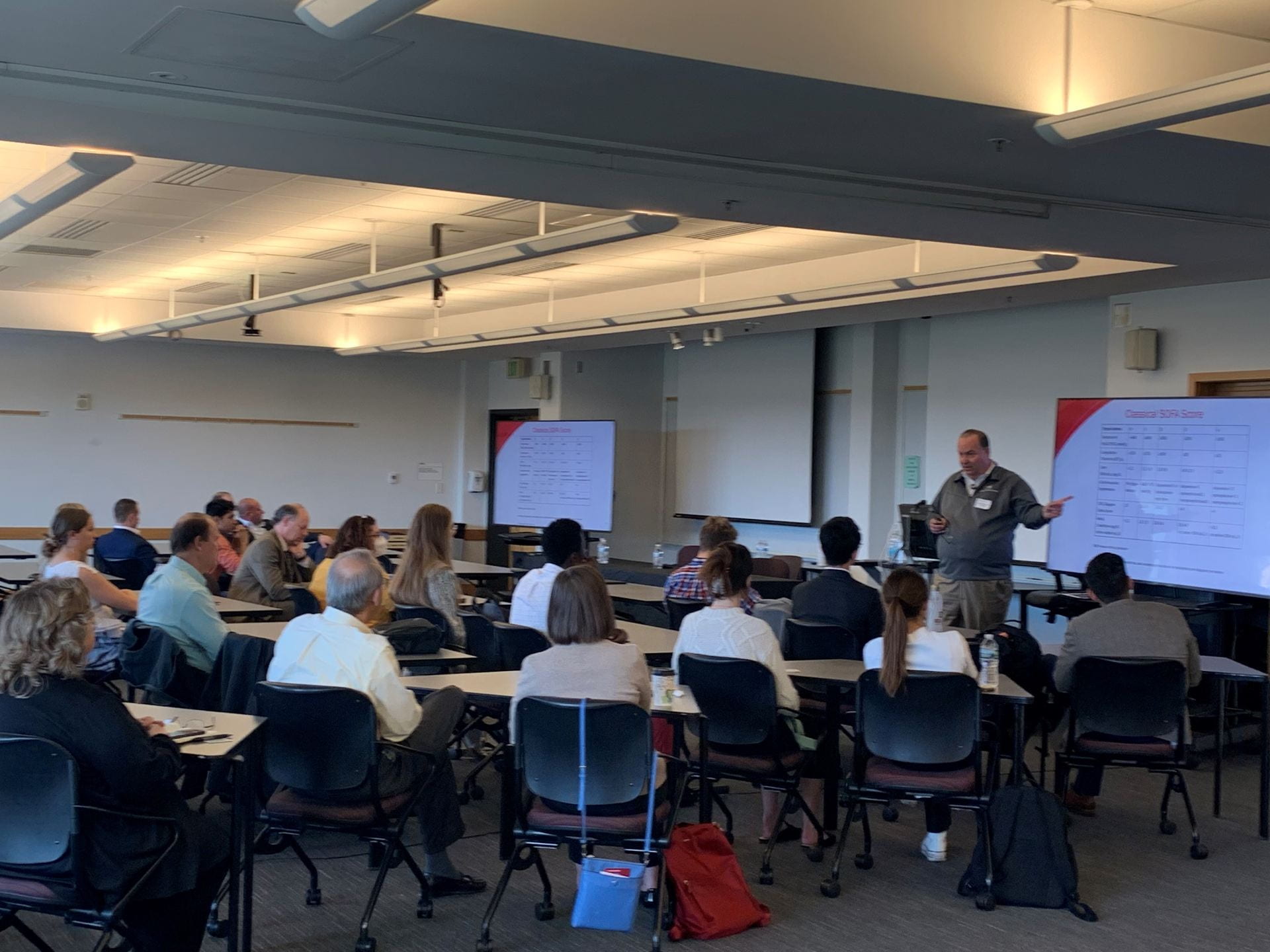
Paul Calklins, MD, CMO, IU Health
Paul Caulkins is an experienced anesthesiologist and Chief Medical Executive at IU Health and has transitioned to emergency medicine care due to the Covid-19 pandemic and focused his time speaking about how data informed critical care decisions when peak hospitalizations occurred. He presented a case study on how he and his team created the CAUTI predictive model which utilizes the sequential organ failure analysis (SOFA) scores and accounts for their triage protocol to decide who was receiving ventilators in the hospitals. He explained the scoring system, the ethics behind these decisions, complications with these cases, and how the algorithm worked to provide an objective lens to inform clinicians who to respond to. Altogether, this enabled the students to understand the critical nature of creating effective models under numerous constraints.
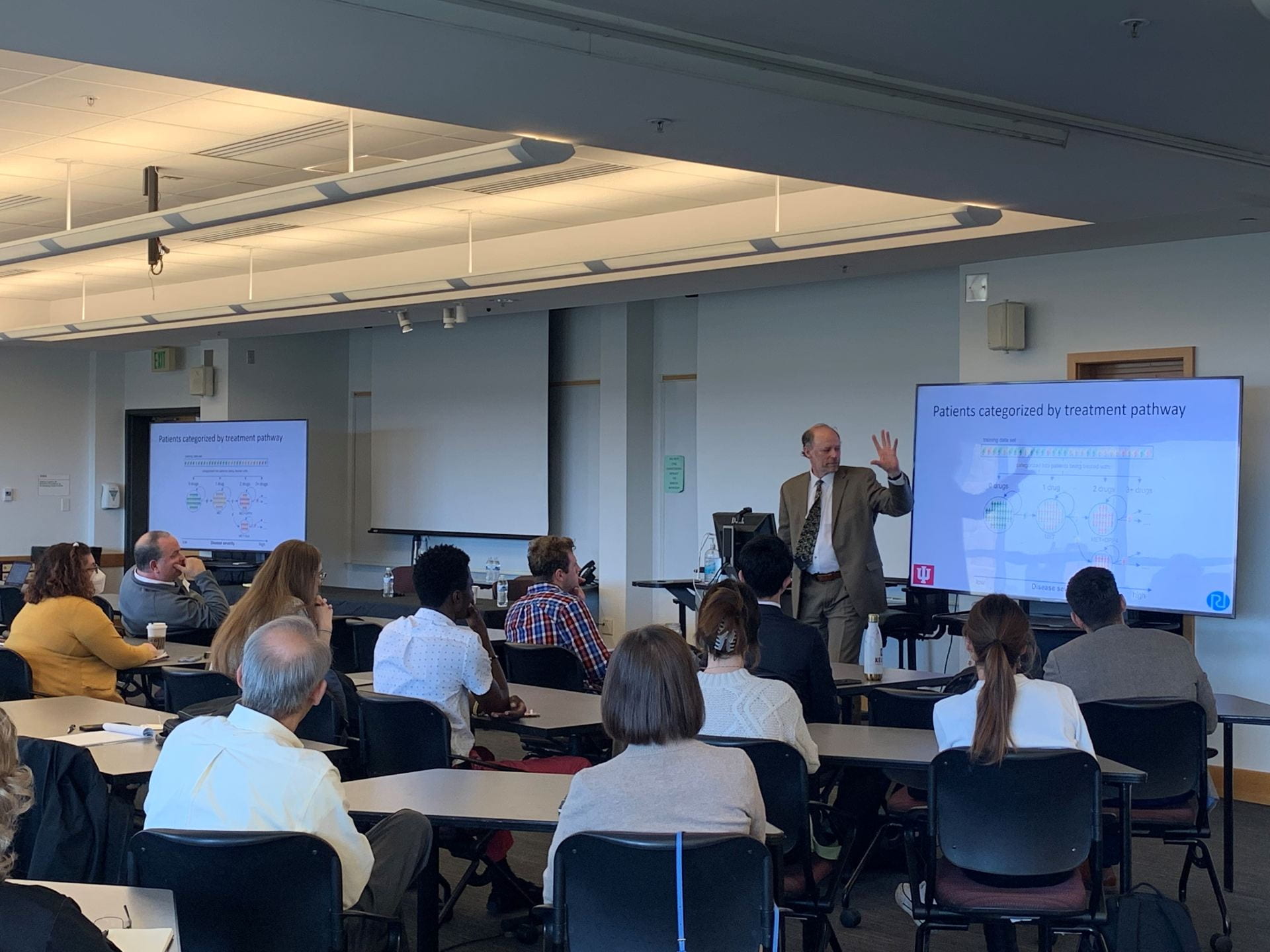
Titus Schleyer, DMD, PhD, FACMI, FAMIA, Research Scientist, Clem McDonald Center for Biomedical Informatics, Regenstrief Institute; Program Director, Learning Health Systems Informatics, Regenstrief Institute; Professor of Medicine, Indiana University School of Medicine
Titus Schleyer, a health informatics researcher at the Regenstrief Institute and clinical professor at the IU School of Medicine, introduced the group to the Indiana Network for Patient Care, a shared repository for health data that is used by clinicians, providers, pharmacists, across the entire state. It is a massive network in Indiana of over 100 healthcare entities that gives providers a large network of information to better help patients, one of the largest networks of health information exchanges in the country.
In his words, his job is to “close the circle from mining data to helping the patient”, and this is done by taking the data from this statewide network and using machine learning models to make predictions that improve decision making. He used 3 case studies, one with regards to the medicine complex Type 2 diabetes patients should be prescribed based on all their information, detecting STDs at scale, and assessing its sensitivity and precision, and predicting patients’ social services needs, which ultimately increased social work referrals and saved a lot of money for healthcare providers. The students learned that combining the data to paint the full picture of the patients’ story is paramount to giving them the most help, and that algorithms are only as good as the data that feeds it, making the INPC an extremely valuable resource that will save our Indiana healthcare systems so much time, money, and strain.
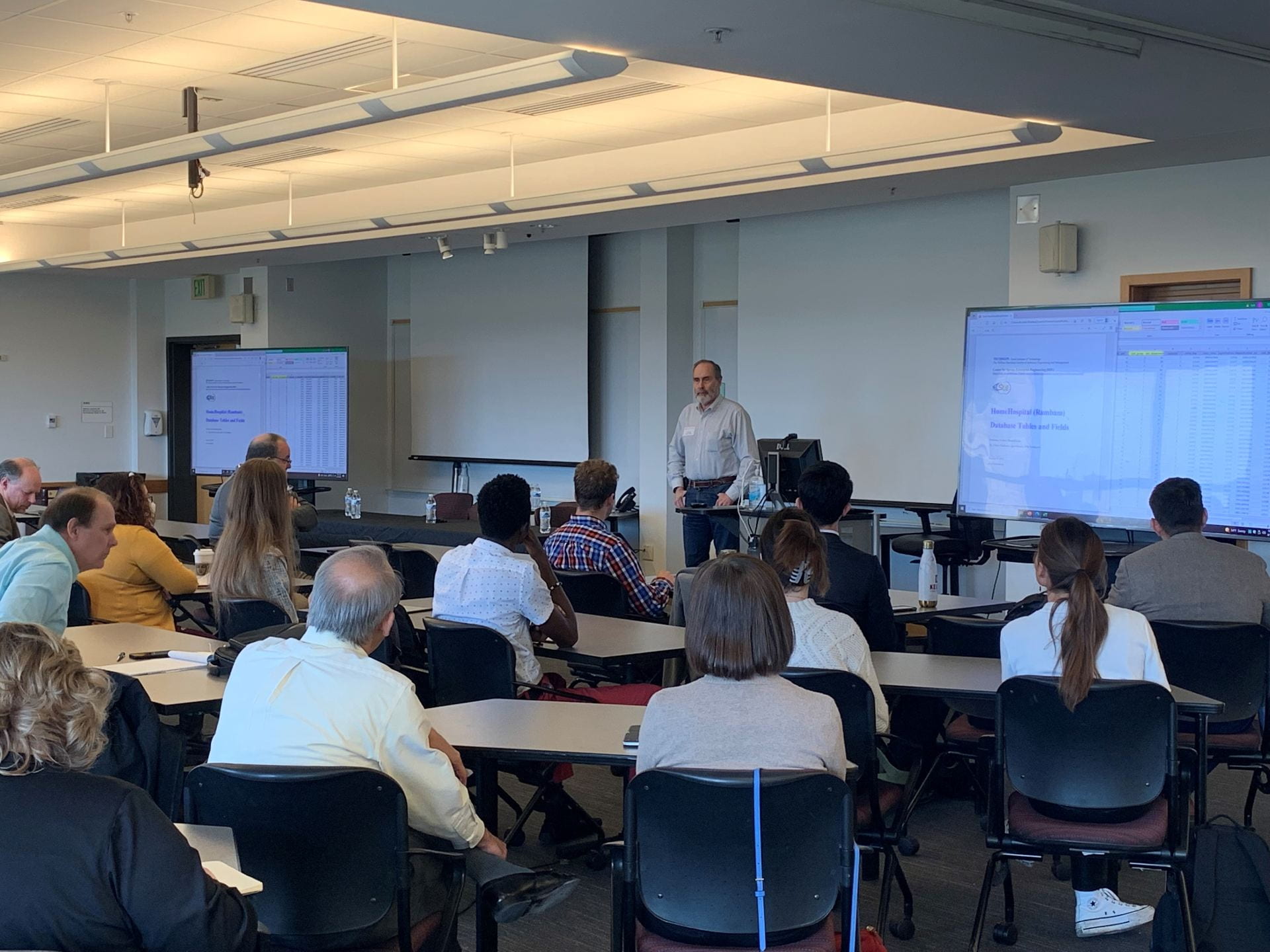
Paul Serex, Senior Lecturer, Operations & Decision Technologies, Kelley; President Serex Associates Consulting
Paul Serex, a Kelley Professor in the Decision and Operational Sciences Department, has spent many years in the healthcare space consulting hospitals and healthcare networks make sense of their data. He emphasized the great need to analyze data well by first understanding where it comes from and what it represents to the organization. Paul demonstrated his data understanding and analytical process by taking hospital data and conceptualizing its problems on a spreadsheet, and then explained how he makes suggestions to those hospitals to optimize their processes. The students were relieved to hear that analytical expertise is not what is most valuable but knowing how to understand the data presented to them in a way that can yield effective decisions making, ask the right questions, and conceptualize the problems that healthcare organizations are facing.
Our last speaker, Aaron Perry, has worked in informatics for years and built algorithms for sports teams and hospitals to support their decision-making process. His presentation highlighted the time he spent in pharmacy consulting, where his job was to analyze large amounts of data to make for the hope of increasing utilization and reducing wasteful time spent so that clinicians could spend more time with their patients. He developed algorithms to help inform pharmacists and physicians the tool to rank which patients they should attend to first based on case severity, resulting in hospitals prioritizing patient care by the level of need rather than proximity. Perry observed from his time there that the pharmacists no longer had to take the time to work to figure out who to see first since the algorithm builds that decision framework and comes up with the answer, providing them with the ability to serve more patients and assist the rest of the pharmacy staff.
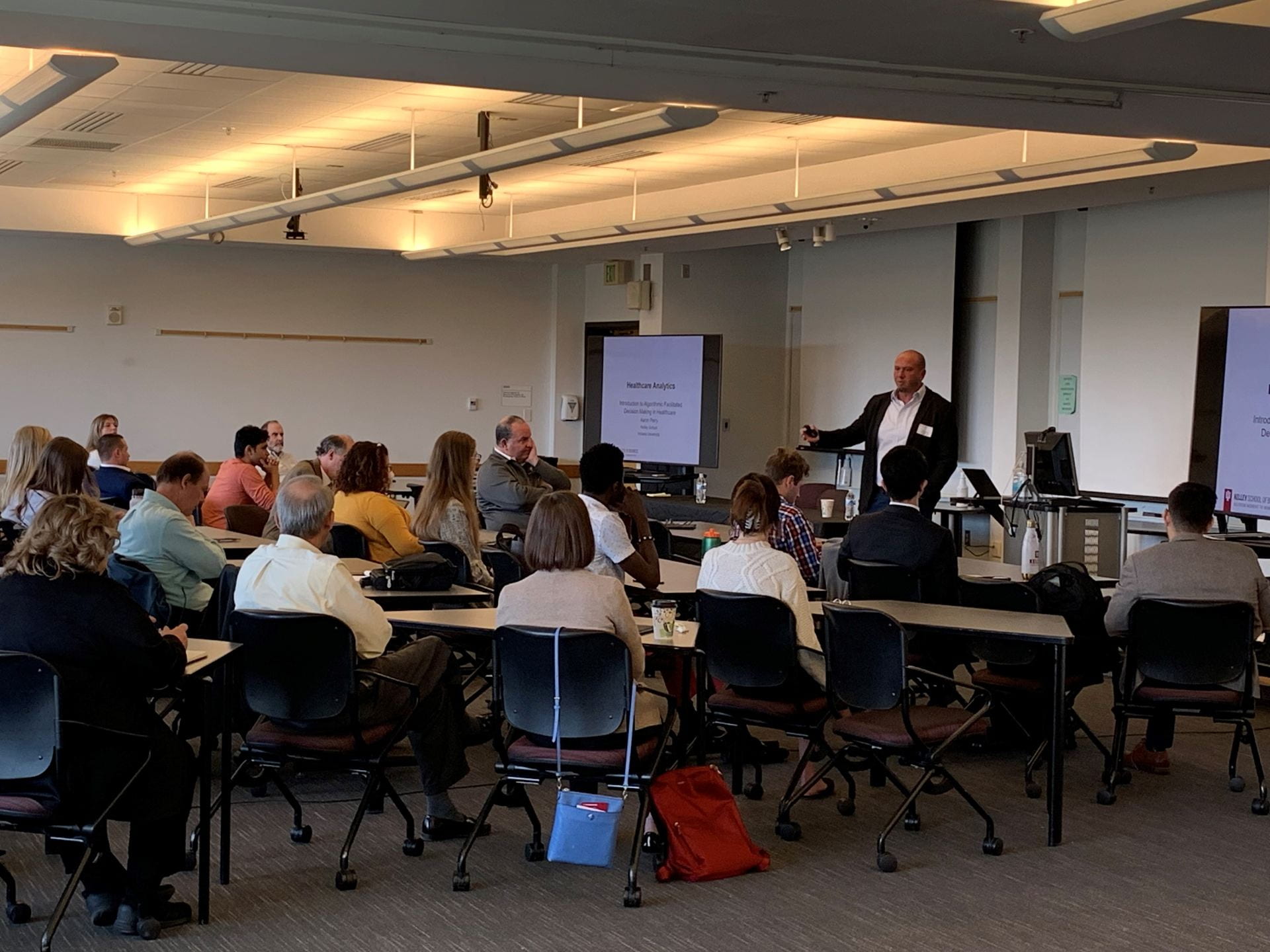
Aaron Perry, Senior Lecturer, Operations & Decision Technologies, Kelley; Co-owner, RxOptimize LLC Consulting
Our last speaker, Aaron Perry, has worked in informatics for years and built algorithms for sports teams and hospitals to support their decision-making process. His presentation highlighted the time he spent in pharmacy consulting, where his job was to analyze large amounts of data to make for the hope of increasing utilization and reducing wasteful time spent so that clinicians could spend more time with their patients. He developed algorithms to help inform pharmacists and physicians the tool to rank which patients they should attend to first based on case severity, resulting in hospitals prioritizing patient care by the level of need rather than proximity. Perry observed from his time there that the pharmacists no longer had to take the time to work to figure out who to see first since the algorithm builds that decision framework and comes up with the answer, providing them with the ability to serve more patients and assist the rest of the pharmacy staff.
After the presentations concluded, we honored our soon-to-be graduates who completed the requirements to earn the Business of Life Sciences Certificate, followed by a lunch with the guest speakers and Life Sciences Board Members.
After the presentations concluded, we honored our soon-to-be graduates who completed the requirements to earn the Business of Life Sciences Certificate, followed by a lunch with the guest speakers and Life Sciences Board Members.
We want to thank the Workman family for sponsoring the event, presenters and CBLS board members for taking the time to share with the students. Congratulations to all of the Life Sciences Certificate Recipients and thank you to everyone who attended this event!
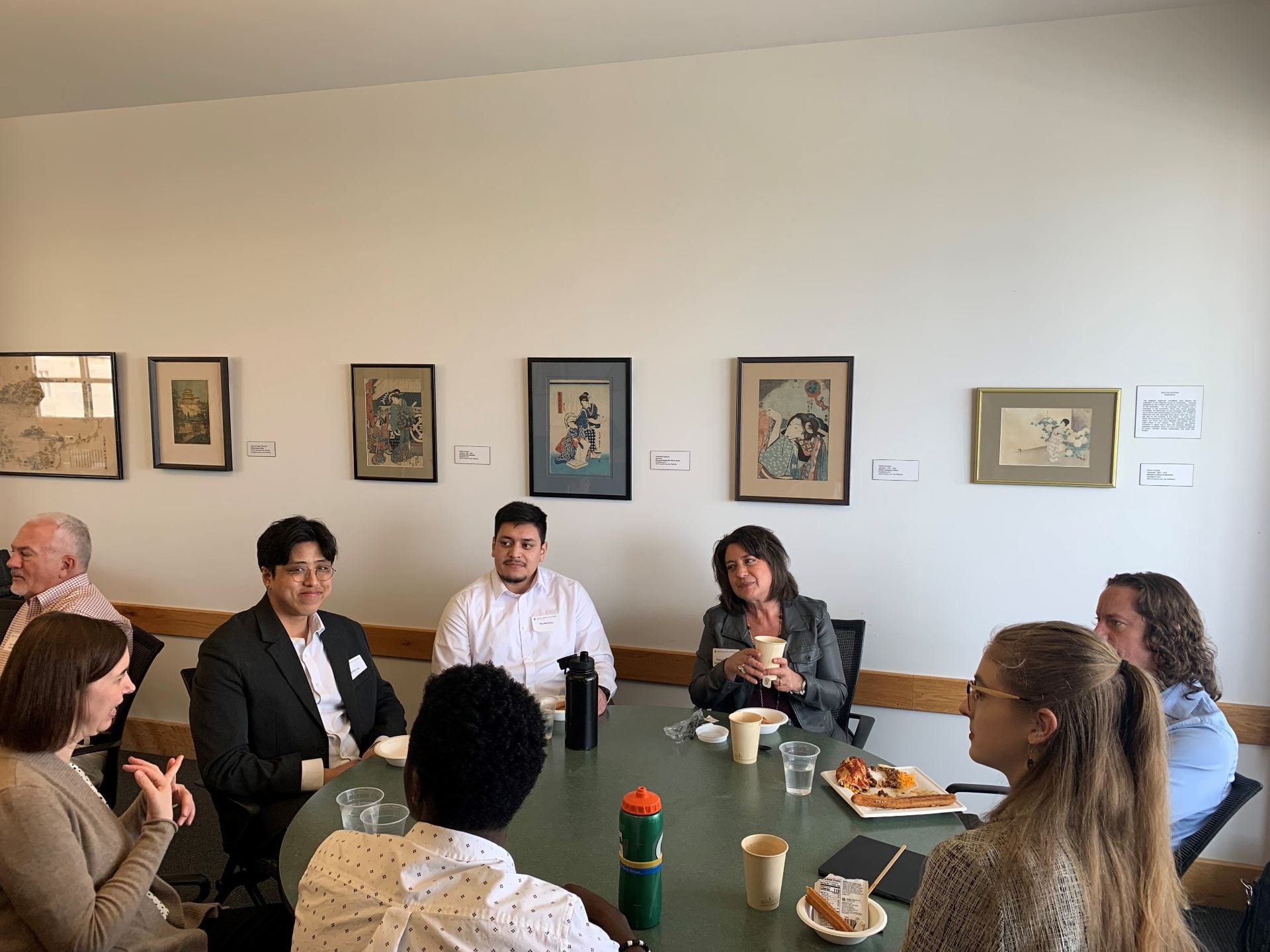
CBLS Industry Advisory Board members Jenn Kowalski (Anthem, Washington D.C.) and Diana Caldwell (Amplified Sciences) and Kelley faculty & CBLS Life Sciences Fellows Director Jonathan Helm speak with students.
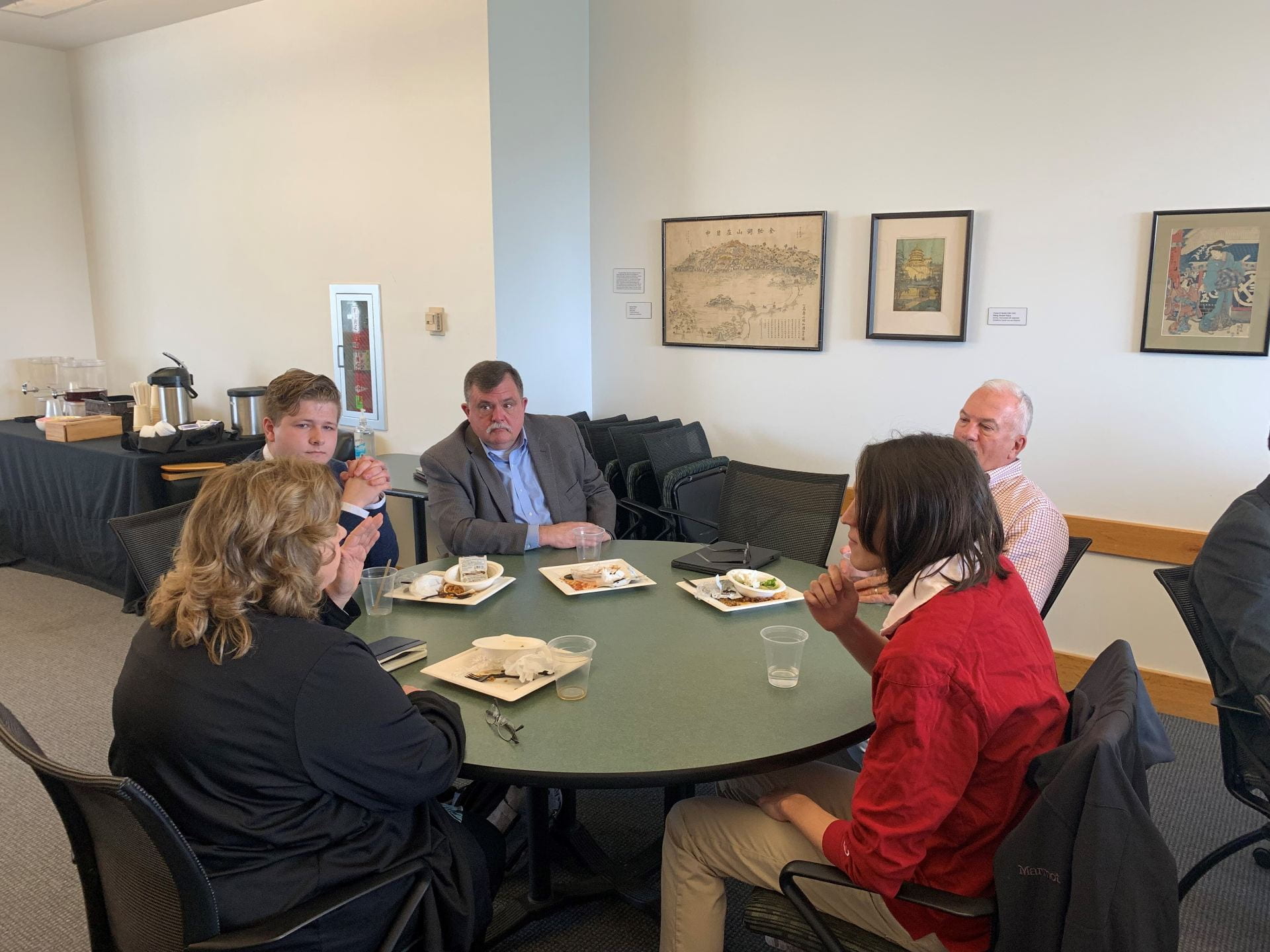
Associate Dean Laureen Maines and CBLS Industry Advisory Board members Dan Peterson (Cook Group) and Todd Blake (Deloitte) network with students.
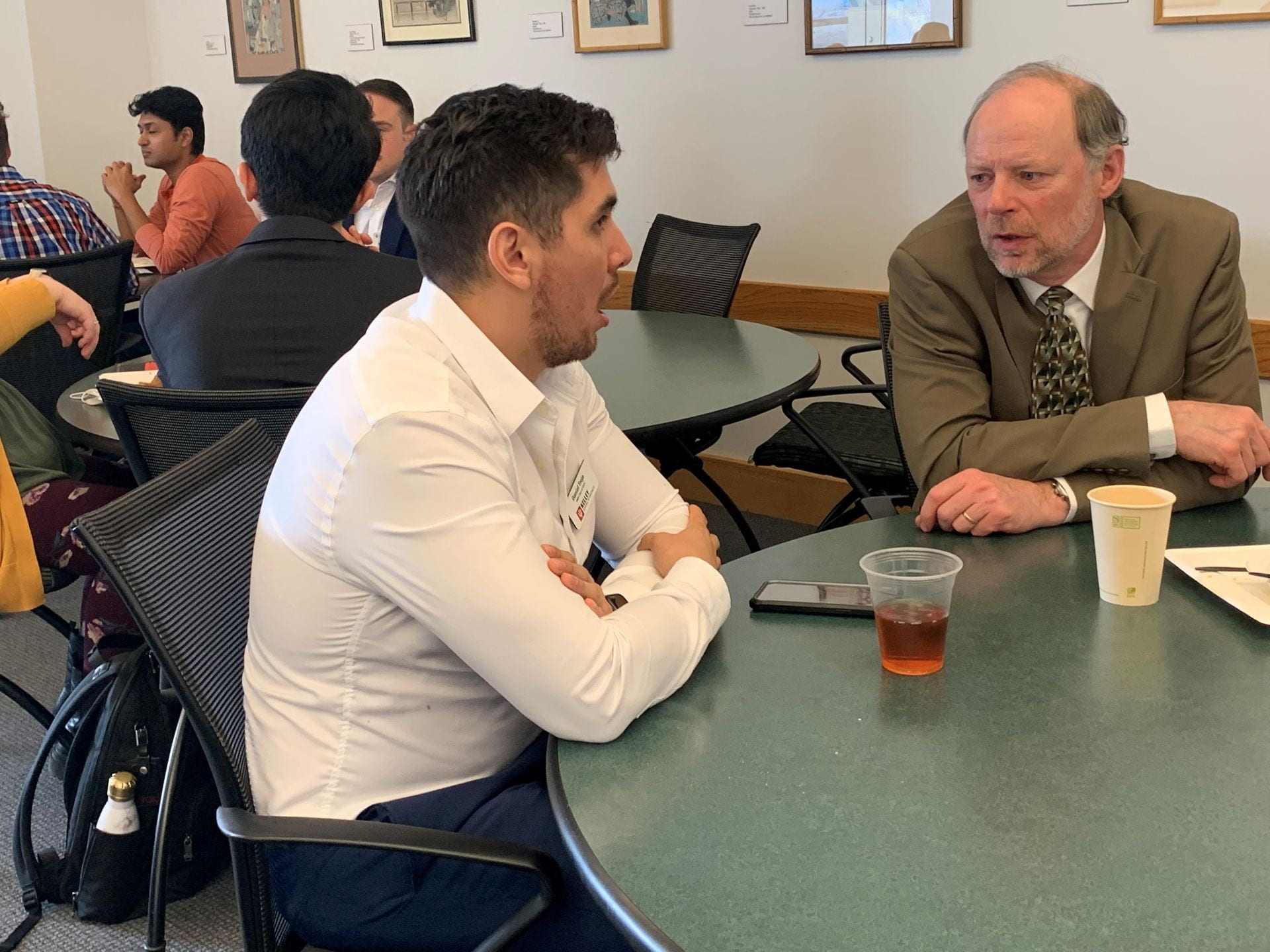
Life Sciences Day speaker, Titus Schleyer (Regenstrief & IUSOM) speaks with Kelley Life Sciences MBA Daniel Trejo.
Leave a Reply